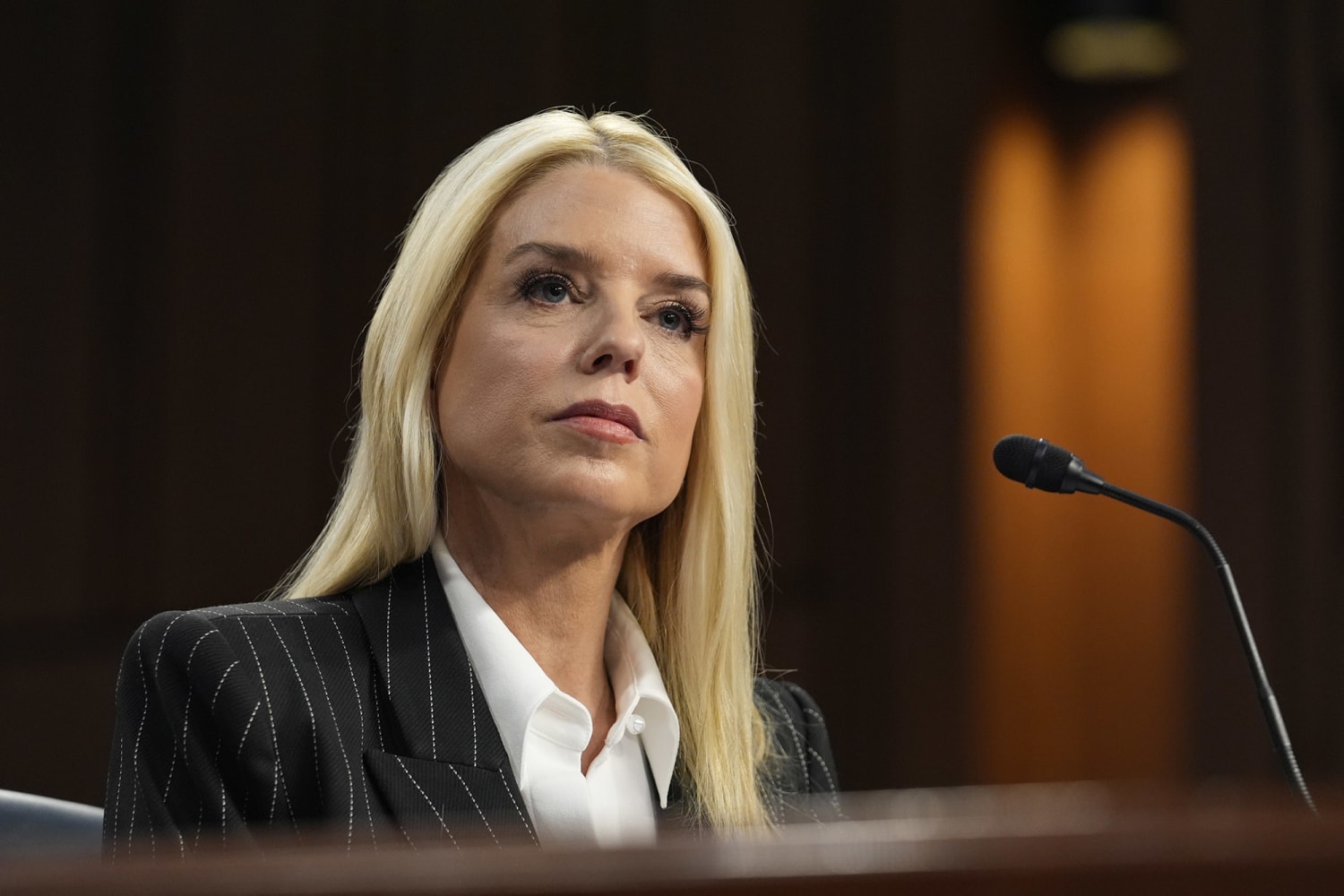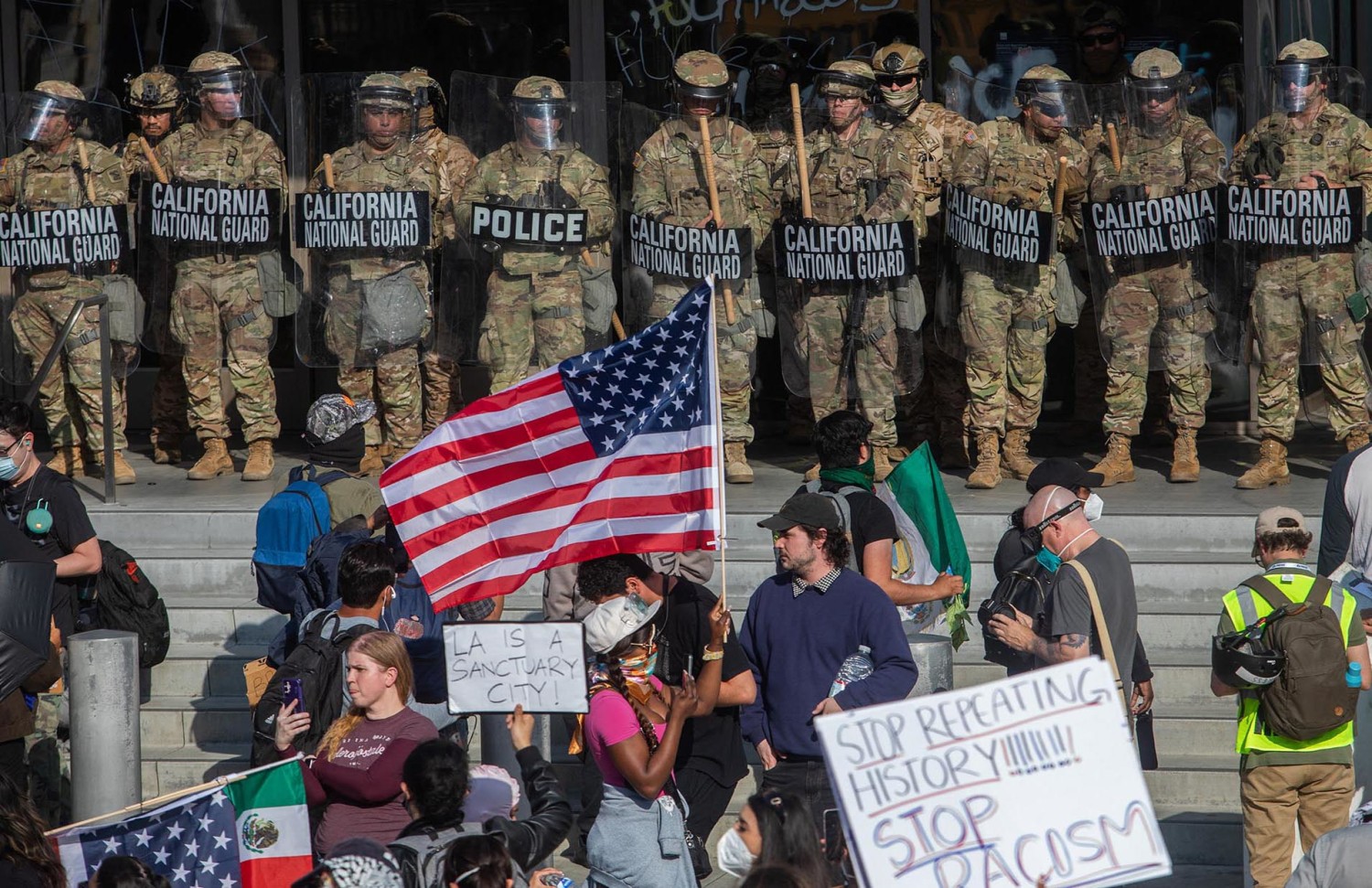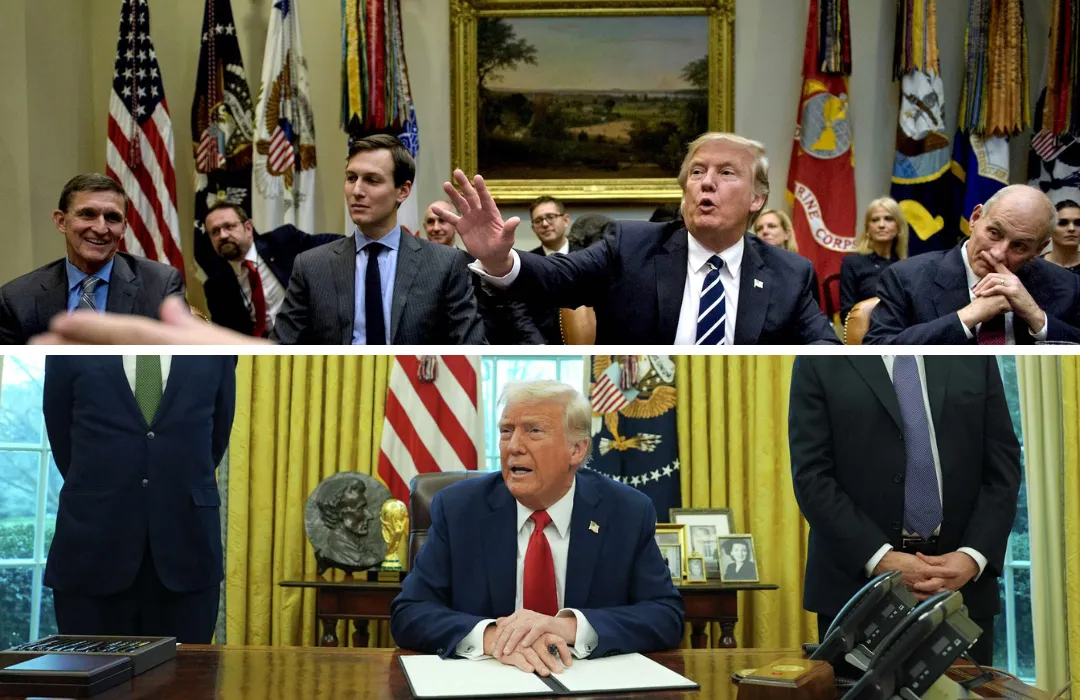The Department of Homeland Security carried out a high-profile immigration enforcement operation in Los Angeles on Wednesday morning, targeting undocumented migrants with alleged ties to gang-controlled neighborhoods.
The move, which resulted in 16 arrests, was described by federal officials as a necessary step to restore order in an area they claim has long been gripped by MS-13 influence.
The action, dubbed “Operation Trojan Horse,” marked one of the most aggressive enforcement operations since President Trump returned to office.
It highlighted the administration’s renewed commitment to enforcing federal immigration law despite growing pushback from activist groups, local politicians, and ongoing legal challenges in federal court.
The raid began at approximately 7 a.m. near a Home Depot located along Wilshire Boulevard by MacArthur Park — a site already familiar to immigration enforcement officials.
The same location had drawn national attention during a June sweep earlier this year, when a large-scale operation led to multiple detentions and triggered intense protests across the city.
On Wednesday, unsuspecting bystanders were stunned as a rented Penske moving truck suddenly became the staging ground for the federal operation. Video from the scene showed federal agents throwing open the back door of the truck and sprinting into the street toward a group gathered near a street food stand.
As the agents charged, the crowd quickly scattered, with several individuals attempting to flee.

By the end of the morning, DHS confirmed that 16 undocumented migrants had been detained. The individuals were identified as nationals from Guatemala, Mexico, Honduras, and Nicaragua.
Federal officials did not immediately release details about their criminal backgrounds, but insisted the arrests were connected to efforts to curb gang activity.
A DHS spokesperson described the raid as necessary for public safety. “This area has a known MS-13 chokehold,” one official told Fox News LA. “We are not going to allow these criminal organizations to endanger communities or exploit sanctuary loopholes.”
The dramatic use of a Penske moving truck as a tactical staging vehicle raised eyebrows. Penske Truck Rental quickly issued a statement clarifying that the company had no prior knowledge of DHS using its equipment in this way.
The company emphasized that it “strictly prohibits transporting people in the cargo areas of its trucks” and promised to reinforce its policies with the federal government. “Penske will reach out to DHS and reinforce its policy to avoid improper use of its vehicles in the future,” the statement read.
The unusual tactic sparked debate about whether such surprise methods are appropriate in domestic immigration enforcement, though federal officials defended the decision as an effective way to catch suspects off guard.
The Los Angeles raid comes at a time when DHS operations are under heightened legal scrutiny. Just last month, a Biden-appointed federal judge issued a ruling restricting warrantless detentions by immigration officials, criticizing what the court described as “roving” patrols that allegedly targeted individuals based on ethnicity or occupation rather than probable cause.
The ruling also mandated that detainees be granted access to legal counsel, a requirement that immigration enforcement advocates warned could slow down deportation efforts.

The Department of Justice sought to pause the restraining order, but a three-judge panel from the Ninth Circuit Court of Appeals declined to intervene. The case is now expected to advance to the U.S. Supreme Court, setting up a potential showdown over the scope of federal enforcement powers.
Despite the ongoing litigation, Wednesday’s operation proceeded without interruption. DHS officials argued that the raid was consistent with federal law and targeted individuals linked to criminal networks.
U.S. Attorney for Los Angeles Bill Essayli celebrated the operation publicly, declaring on X: “For those who thought immigration enforcement had stopped in Southern California, think again. The enforcement of federal law is not negotiable, and there are no sanctuaries from the reach of the federal government.”
The latest sweep is not the first time Trump’s DHS has clashed with Los Angeles leadership. The June 6 operation in the same neighborhood drew direct confrontation from Mayor Karen Bass, who publicly demanded that federal agents leave the city.
“They need to leave, and they need to leave right now. They need to leave because this is unacceptable,” Bass shouted at agents during the June sweep.
That day, DHS executed coordinated raids at seven locations across Los Angeles. By evening, mass protests had erupted citywide, with thousands marching in opposition to federal immigration enforcement.
As demonstrations escalated, the Los Angeles Police Department was forced to declare an unlawful assembly and activate a citywide tactical alert. SkyFOX helicopters captured footage of LAPD officers in riot gear forming defensive lines outside the Royal Federal Building downtown as protesters hurled objects toward the structure.
Some demonstrators clashed violently with police. Tear gas and pepper spray were deployed after protesters broke chunks of concrete with hammers and launched them at officers. Graffiti reading “F** ICE”* was scrawled across city property in several locations.

Wednesday’s operation did not immediately spark protests of the same scale, though immigrant rights groups quickly condemned the arrests and accused DHS of violating due process protections.
Pro-illegal immigration activists have long argued that federal enforcement disproportionately targets vulnerable communities. They point to sweeps like Operation Trojan Horse as examples of excessive force and political theater.
Advocates insist that undocumented immigrants detained in such raids are often workers, not criminals, and that raids near community hubs like Home Depot stigmatize Latino populations and create a climate of fear.
One activist group issued a statement on Wednesday calling the DHS operation “an assault on immigrant communities conducted under the guise of public safety.”
Federal officials countered that the raids are targeted, not random, and designed to restore order in neighborhoods plagued by violent gangs. “We are not targeting day laborers because of their ethnicity,” one DHS source insisted. “We are targeting individuals tied to criminal activity and exploiting sanctuary jurisdictions.”
The Trump administration has made clear that immigration enforcement is once again a top priority. During his campaign, Trump promised to crack down on sanctuary cities and restore federal authority over immigration policy.
Since taking office again, Trump’s DHS has escalated enforcement in jurisdictions that resist cooperation with federal agents. Los Angeles, with its sanctuary policies and outspoken political leadership, has become a focal point of the conflict.
The Wednesday operation demonstrated that despite legal challenges, DHS is willing to conduct high-visibility raids to assert federal power. Administration officials see such actions as both deterrent and message: sanctuary policies will not shield undocumented migrants from federal law.
The raid also sharpened partisan divides nationwide. Conservatives hailed the operation as evidence that the Trump administration is delivering on its promise to secure the border and enforce immigration laws.
Supporters praised DHS for targeting gang-controlled areas and preventing further entrenchment of MS-13. “Law and order must come first, even in Los Angeles,” one supporter wrote on social media.
Meanwhile, progressive leaders denounced the operation as heavy-handed and politically motivated. They argued that the spectacle of agents bursting from a rental truck reinforced fears that immigration enforcement under Trump is less about public safety and more about intimidation.
For many in Los Angeles, the raid served as a reminder of the deep divide between city leaders determined to protect immigrant communities and a federal government determined to crack down on them.
As legal battles continue and the Supreme Court prepares to weigh in on the scope of DHS powers, operations like Wednesday’s are likely to remain flashpoints. Trump’s administration has signaled it will not retreat, even in the face of lawsuits, local opposition, and public unrest.
For Los Angeles, a city already strained by housing crises, homelessness, and rising crime, immigration enforcement adds another layer of tension. Community groups are bracing for further sweeps, while DHS officials insist that their focus will remain on neighborhoods where gang influence is strongest.
The long-term political consequences remain uncertain. What is clear is that immigration enforcement is once again at the forefront of national debate — and Los Angeles has become one of the key battlegrounds.
The surprise DHS raid in Los Angeles, marked by federal agents leaping from a Penske truck and detaining 16 undocumented migrants, has reignited fierce debate over immigration enforcement in America’s second-largest city.

To supporters, it was a bold step to restore safety and counter gang influence. To critics, it was another example of heavy-handed tactics targeting vulnerable communities.
With ongoing legal challenges, clashes with city leaders, and protests simmering beneath the surface, Wednesday’s operation made one thing clear: under President Trump, the era of aggressive immigration enforcement has returned, and no sanctuary city is off-limits.





